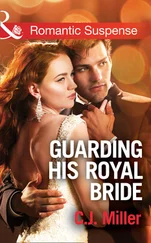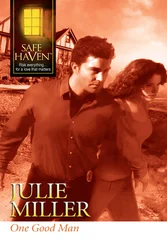Despite the seven gods his sleep is dreamless. He lies in to some unseemly hour (as young boys, he and Ryuichi were always up at dawn on New Year’s Day), and in the afternoon plays flower cards with Miyo in the Western room, now and then looking up to watch Father in the garden brushing snow from the delicate plants, unburdening them. Miyo, who excels at flower cards, wins fifty sen and insists on being paid immediately. He pays her, wondering if she has a little purse hidden somewhere, a purse of little coins, perhaps under the house.
At twilight he goes upstairs and onto the platform. With his back to one of the drying posts he gazes over snow-heaped roofs to where a red neon sign for Jintan Pills winks blearily from its gantry in the Low City. He likes sometimes to imagine it’s sending him a message, a warning, an invitation, something meaningful, but today it is simply, ‘Jintan Pills, Jintan Pills, Jintan Pills . .’
From the gardens he hears the collar bell of Kyoko’s cat. He leans over the parapet and sees its shadow spring from the fence and glide under the bare branches of the gingko tree. The animal is pregnant and seems to have made a nest for herself in the bamboo that grows in a screen round the garden privy. No way of knowing, of course, which of the local toms has been with her.
On the second day of the holiday he does what he calls his accounts. The reckoning is very simple. After paying Miyo, he has eleven yen and fifty sen left in the world. He owes two yen to Taro, one to Shozo and three at the noodle shop. This leaves the almost useless sum of five yen and fifty sen. On the credit side, there are ten yen owing to him for the Niigata Docks copy, another ten for translating, for the Fukuhara Toothpaste Company, a document entitled ‘ Gingivite — Le Grand Défi de Notre Époque ?’ The rest is all hope, ambition, speculation. No sign yet of any New Year gift money. No one decently to borrow from. Little chance of credit.
He turns over the paper and on the other side starts to make a list of people who might help him. He puts Grandfather at the top. Even if the old man was involved in the decision to stop the allowance — especially if he was involved — would he not agree to a small loan? There have been several in the past (some of them repaid). But with Grandfather there is always the difficulty of knowing what he has anymore, whether he has given all his money away to shrines (a new carved roof for the shrine at Mita, a god-car for the shrine at Kitazawa), to family spinsters in the country, to former employees on hard times, or whether it is still lying in bars of jade and bolts of silk in a fireproof godown somewhere by the river.
Horikawa (of Horikawa and Son, Horikawa Trading Inc., the Horikawa Talent Bureau) can usually be counted on, but only for scraps . .
And Makiyama? Whatever one thinks of him, whatever one cannot avoid thinking, it must be admitted he has the necessary connections. He took the John Ford essay last summer, placed it with Eastern Review , and might, if Yuji can find him sober, be persuaded to take something else, something on Fritz Lang, or the stories of Akutagawa, or even — why not? — on Arthur Rimbaud. For that he would need only the books that lie around in his room. He could write it in a week, in two days, though he would have to find some contemporary relevance, some angle to make a dead French poet enticing to a modern Japanese readership . .
There is a way, of course, a way he has thought of countless times. Monsieur Feneon must be persuaded to show him the letter, the one he mentioned (and so casually!) that spring afternoon in Professor Komada’s rooms, but which, in the years since, nobody in the club has succeeded in gaining so much as a glimpse of, all requests met with the same enigmatic smile, the same flutter of the hand. But a story based on the letter, an essay that linked the names of Rimbaud, Feneon and Yuji Takano, a literary detective story, a kind of séance, it could even make a news story, something for the human-interest pages in the Yomiuri , a respite from reports of battlefield sacrifice, or some village in Shikoku where they have vowed to give up sleep so they can plant more rice. With the letter in his hand, would he need Makiyama?
Out in the garden the crows are squabbling. In the Western room the clock is chiming the hour. He puts down his pen. Today, perhaps, he will see Mother. Today is one of the usual days, one of those appointed to such meetings. He combs his hair, goes downstairs to find Haruyo. She is in the kitchen squatting by the half-open door to the passage along the side of the house, a heavy shawl across her shoulders, her long-stemmed pipe in her mouth. Without looking at him, she says that Mother is too tired to see anyone, that she is resting. Resting? She nods. He wonders if she also forbids Father, this nurse-servant who has become Mother’s warder. He wonders, too, how a person can be tired when they do nothing, when they have done nothing for seventeen years, when every day they are resting, resting.
Back in his room, he picks up the little sheet of accounts, stares at it, then takes his fountain pen and writes across the bottom, in the neat, cursive script he first learnt at middle school, ‘ Ô saisons, Ô château, quelle âme est sans défauts? ’ Then he rips the page in two, drops the halves into the brazier. Black-ringed holes appear. Finally, a flame.
Early on the morning of the last day of the holiday, Uncle Kensuke rings. Yuji, still in bed, knows it must be Uncle calling because Father, who has answered the phone, is asking about the snow in the mountains. ‘Has there been much yet? Hmm. I see. That must be difficult for you . . Yes. Here too, a few inches.’
Sometimes Uncle Kensuke and Auntie Sawa come to Tokyo for the holiday, but this year they will not be coming until the Festival of Lanterns, the Festival of the Dead. Father asks about the children, Hiroshi and Asako, and Asako’s husband, who everyone says is doing so well with Mitsubishi. ‘And Sawa? Her back? Hmm.’
Now it’s Uncle’s turn to ask questions. ‘Oh, much the same,’ says Father, though Yuji cannot tell if he is speaking of himself or Mother, or everything. ‘This year will be better, perhaps. I might try my luck at a little farming, like you. I could buy some chickens, keep a pig.’ He laughs. ‘If we have food shortages, I can make my fortune.’
There is a long pause while Uncle speaks. He is the younger brother and not, therefore, not strictly, the one to be proffering advice to the head of the family, but Yuji hopes that is exactly what he is doing. If Father has the subtler brain, the one best suited to the play of abstracts, the framing of elegant questions, the exegesis of documents whose difficulty is like a glass surface thick as a fist, it’s Uncle Kensuke who has inherited Grandfather’s common sense.
‘Well,’ says Father, ‘well, we’ll see.’ Then he laughs the same unhappy laugh at what is evidently a question about Grandfather. ‘The model? Oh, yes, it still goes on, I believe.’
That night Yuji wakes out of a dream. Not one of the fire dreams — he’s been spared those for almost half a year — but some troubling dream whose details disperse in the instant of waking, leaving only an atmosphere, a sense of ominous approach, of struggle. And what comes to comfort him as he lies in the frigid small-hours stillness of his room is the memory of Uncle Kensuke’s farmhouse above Kyoto, and of Uncle himself, always more artist than farmer, hoisting sheets of silk and linen from the vats in the floor of the dyeing barn, where all through the cold season the indigo leaves lie steeping in a brew of wood ash and lime and sake. Men’s urine, too, if Hiroshi is to be believed.
Читать дальше












